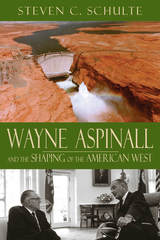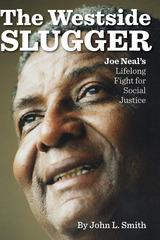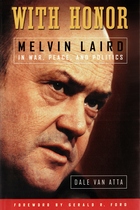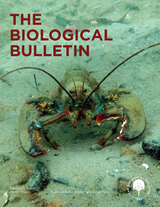4 start with W start with W

In Wayne Aspinall and the Shaping of the American West, Steven C. Schulte details a political career that encompassed some of the most crucial years in the development of the twentieth-century West. As chairman of the House Interior and Insular Affairs Committee from 1959 to 1973, Aspinall shaped the nation's reclamation, land, wilderness, and natural resource policies. His crusty and dtermined personality was at the enter of some of the key environmental battles of the twentieth century, including the Echo Park Dam fight, the struggle for the Wilderness Act, and the long controversy over the Central Arizona Project.

From Policy Advocates to Whips to Ministers, the many roles within the British Parliament are shaped not only by institutional rules but also by the individuals who fill them, yet few observers have fully appreciated this vital aspect of governing in one of the world's oldest representative systems. Applying a new motivational role theory to materials from extensive first-hand interviews conducted during the eventful 1970s, Donald Searing deepens our understanding of how Members of Parliament understand their goals, their careers, and their impact on domestic and global issues. He explores how Westminster's world both controls and is created by individuals, illuminating the interplay of institutional constraints and individual choice in shaping roles within the political arena.
No other book tells us so much about political life at Westminster. Searing has interviewed 521 Members of Parliament—including Conservative Ministers Margaret Thatcher, Peter Walker, and James Prior; Labour Ministers Harold Wilson, Barbara Castle, and Denis Healey; rising stars Michael Heseltine, Norman Tebbitt, David Owen, and Roy Hattersley; habitual outsiders, like Michael Foot, who eventually joined the inner circle; and former insiders, like Enoch Powell, who were shut out. Searing also gives voice to the vast number of Westminster's backbenchers, who play a key part in shaping political roles in Parliament but are less likely to be heard in the media: trade unionists, knights of the shires, owners of small businesses, and others. In this segment of his study, women, senior backbenchers, and newcomers are well represented.
Searing adroitly blends quantitative with qualitative analysis and integrates social and economic theories about political behavior. He addresses concerns about power, duty, ambition, and representation, and skillfully joins these concerns with his critical discoveries about the desires, beliefs, and behaviors associated with roles in Parliament. Westminster's World offers political scientists, historians, anthropologists, political commentators, and the public rich new material about the House of Commons as well as a convincing model for understanding the structure and dynamics of political roles.

Filled with an intense desire for education, he joined the United States Air Force and later graduated from Southern University—studying political science and the law at a time of great upheaval in the racial status quo. As part of a group of courageous men, Neal joined a Department of Justice effort to register the first black voters in Madison Parish.
When Neal moved to southern Nevada in 1963 he found the Silver State to be every bit as discriminatory as his former Louisiana home. As Neal climbed through the political ranks, he used his position in the state senate to speak on behalf of the powerless for more than thirty years. He took on an array of powerful opponents ranging from the Clark County sheriff to the governor of the state, as well as Nevada’s political kingmakers and casino titans. He didn’t always succeed—he lost two runs for governor—but he never stopped fighting. His successes included improved rights for convicted felons and greater services for public education, mental health, and the state’s libraries. He also played an integral role in improving hotel fire safety in the wake of the deadly MGM Grand fire and preserving the pristine waters of Lake Tahoe, which brought him national attention.
Neal lived a life that personified what is right, just, and fair. Pushing through racial and civil rights hurdles and becoming a lifelong advocate for social justice, his dedication and determination are powerful reminders to always fight the good fight and never stop swinging.

The first book ever to focus on Laird’s legacy, this authorized biography reveals his central and often unrecognized role in managing the crisis of national identity sparked by the Vietnam War—and the challenges, ethical and political, that confronted him along the way. Drawing on exclusive interviews with Laird, Henry Kissinger, Gerald Ford, and numerous others, author Dale Van Atta offers a sympathetic portrait of a man striving for open government in an atmosphere fraught with secrecy. Van Atta illuminates the inner workings of high politics: Laird’s behind-the-scenes sparring with Kissinger over policy, his decisions to ignore Nixon’s wilder directives, his formative impact on arms control and health care, his key role in the selection of Ford for vice president, his frustration with the country’s abandonment of Vietnamization, and, in later years, his unheeded warning to Donald Rumsfeld that “it’s a helluva lot easier to get into a war than to get out of one.”
READERS
Browse our collection.
PUBLISHERS
See BiblioVault's publisher services.
STUDENT SERVICES
Files for college accessibility offices.
UChicago Accessibility Resources
home | accessibility | search | about | contact us
BiblioVault ® 2001 - 2024
The University of Chicago Press









